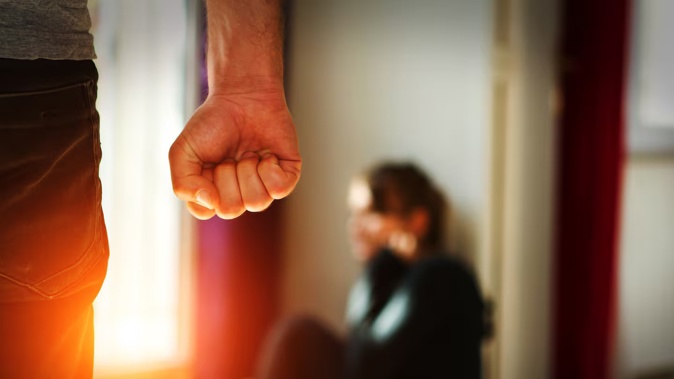

WARNING: This article deals with extreme family violence and may be distressing for some readers.
A man beat his partner so badly she is now a “shell of a person” who is unable to feed herself and will spend the rest of her life in care.
Kasinga Filivao was jailed for 14 years and six months for the attack, which led to a lead charge of causing grievous bodily harm with intent, and for another assault on the woman six months earlier.
Ambulance staff who went to Filivao’s Mangere house, and who were told the victim had fallen in the shower, said they saw significant swelling to the knuckles on one of Filivao’s hands.
They found his partner lying unconscious on a mattress which was heavily soiled with urine.
She had serious facial injuries and her eyes were swollen shut.
After she was admitted to Auckland Hospital, clinicians found she had suffered a serious brain injury.
The night before, neighbours had heard a series of bangs and thuds from the home, along with screaming and someone swearing in Tongan.
The assault happened in 2014, but the case is back before the courts because Filivao appealed his two convictions, for causing grievous bodily harm and assault with intent to injure.
He also appealed against his sentence, which he said was “manifestly excessive”.
The Court of Appeal judgment handed down today also described the life-long consequences for Filivao’s victim, a woman who was in a relationship with him for about nine months.
“As a consequence of the assault by the appellant, the victim suffered a serious brain injury which has meant that she will remain in care for the rest of her life, being unable to undertake such basic functions as feeding herself,” the Court of Appeal judgment said.
The decision described the victim now as a “shell of a person”. It said the multiple blows she suffered to the head and delays in seeking treatment had effectively taken her life away from her and her family.
Filivao claimed that a miscarriage of justice had occurred because the lawyer at his jury trial had steered him away from giving evidence in his own defence.
He also claimed that the jurors were not unanimously convinced that Filivao caused the brain injury, but convicted him anyway because they all believed he had assaulted the victim.
Filivao also complained about directions the trial judge gave to the jury.
The Court of Appeal disagreed with him and dismissed Filivao’s appeals against convictions and his sentence overall.
However, the appeal judges found that a minimum non-parole period of nine years was four months longer than the maximum allowed by law, and reduced it by that much.
The change will make no difference in reality, as Filivao has already served more than nine years.
The Court of Appeal judgment also described an earlier assault on the woman by Filivao, which happened six months before the beating that caused the brain injury.
In that, one of the victim’s relatives saw Filivao stomp on the woman’s face while she was on the floor, and then pull her hair when she got up.
The relative got between Filivao and the woman, and was hit by a beer bottle.
The relative saw Filivao punch the woman again as they left the house.
In deciding the original sentence, Judge David McNaughton in the district court started the sentence calculation for the GBH charge at 13 years, only one year below the maximum for that offence.
He said the reason he did not apply the maximum sentence was that Filivao had used his fist and not a weapon.
Judge McNaughton added 18 months for the earlier assault, to be served cumulatively.
FAMILY VIOLENCE
How to get help: If you’re in danger now:• Phone the police on 111 or ask neighbours or friends to ring for you.
• Run outside and head for where there are other people. Scream for help so your neighbours can hear you.
• Take the children with you. Don’t stop to get anything else.
• If you are being abused, remember it’s not your fault. Violence is never okay.
Where to go for help or more information:
• Women’s Refuge: Crisis line - 0800 REFUGE or 0800 733 843 (available 24/7)
• Shine: Helpline - 0508 744 633 (available 24/7)
• It’s Not Ok: Family violence information line - 0800 456 450
• Shakti: Specialist services for African, Asian and Middle Eastern women and children.
• Crisis line - 0800 742 584 (available 24/7)
• Ministry of Justice: For information on family violence
• Te Kupenga Whakaoti Mahi Patunga: National Network of Family Violence Services
• White Ribbon: Aiming to eliminate men’s violence towards women.
Ric Stevens spent many years working for the former New Zealand Press Association news agency, including as a political reporter at Parliament, before holding senior positions at various daily newspapers. He joined NZME’s Open Justice team in 2022 and is based in Hawke’s Bay. His writing in the crime and justice sphere is informed by four years of front-line experience as a probation officer.
This article was originally published on the NZ Herald here

Take your Radio, Podcasts and Music with you









